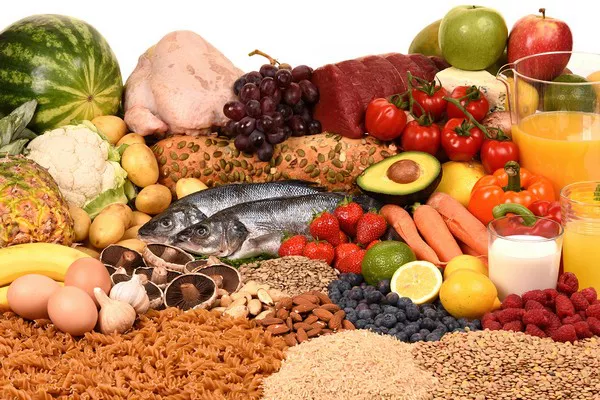When it comes to building muscle, protein plays a crucial role. It is the macronutrient responsible for providing the building blocks needed for muscle growth and repair. Understanding how much protein to consume to maximize muscle gain is essential for individuals looking to optimize their fitness goals. In this article, we will delve into the relationship between protein and muscle gain, exploring the recommended protein intake, timing, and sources to help you unlock the key to achieving your muscle-building aspirations.
The Importance of Protein in Muscle Gain
Protein is composed of amino acids, which are the building blocks of muscle tissue. When we engage in resistance training or other forms of exercise that challenge our muscles, we create micro-tears in the muscle fibers. Protein is required to repair and rebuild these damaged muscle fibers, leading to muscle growth and adaptation over time.
Consuming an adequate amount of protein is essential for individuals looking to gain muscle mass. Protein provides the body with the necessary amino acids to initiate muscle protein synthesis, the process by which new muscle proteins are produced. By optimizing protein intake, you can provide your body with the resources it needs to support muscle growth and recovery.
Determining Protein Needs for Muscle Gain
The optimal protein intake for muscle gain is a subject of ongoing debate and research. Several factors influence an individual’s protein requirements, including body weight, activity level, training intensity, and goals. The general recommendation for protein intake to support muscle gain is between 1.6 to 2.2 grams of protein per kilogram of body weight per day.
To determine your specific protein needs, take your body weight in kilograms and multiply it by the recommended range. For example, a person weighing 70 kilograms would aim for a daily protein intake between 112 to 154 grams (70 kg x 1.6-2.2 g/kg). It’s important to note that these recommendations are based on scientific literature and may need to be adjusted based on individual factors and preferences.
Timing Protein Intake for Muscle Gain
In addition to the total amount of protein consumed, the timing of protein intake is also important for muscle gain. Research suggests that distributing protein intake evenly throughout the day, rather than consuming most of it in a single meal, may be beneficial for muscle protein synthesis.
To optimize muscle protein synthesis, it is recommended to consume around 20-40 grams of protein per meal. This amount has been shown to maximize muscle protein synthesis rates. Therefore, individuals aiming for muscle gain should aim to include a good source of protein in each meal and snack throughout the day.
Additionally, consuming protein before and after resistance training sessions can further enhance muscle protein synthesis. Consuming protein before exercise provides amino acids for immediate use during the workout, while consuming protein after exercise promotes muscle recovery and helps initiate the muscle-building process.
Choosing High-Quality Protein Sources for Muscle Gain
The quality of protein consumed also plays a role in maximizing muscle gain. High-quality protein sources provide a complete amino acid profile, containing all the essential amino acids needed for muscle protein synthesis. Some excellent sources of high-quality protein include:
- Lean Meats and Poultry: Lean cuts of beef, chicken, turkey, and other meats are rich in protein and provide essential amino acids necessary for muscle growth.
- Fish and Seafood: Fish and seafood are excellent protein sources and often contain beneficial omega-3 fatty acids, which have been shown to support muscle recovery and reduce muscle inflammation.
- Eggs and Dairy Products: Eggs, milk, yogurt, and cheese are all rich in protein and provide a complete amino acid profile. They are also convenient and versatile options for increasing protein intake.
- Plant-Based Proteins: For individuals following a vegetarian or vegan diet, plant-based protein sources such as legumes, tofu, tempeh, seitan, quinoa, and certain grains can provide the necessary amino acids for muscle growth.
- Supplements: In some cases, individuals may find it challenging to meet their protein needs through whole foods alone. Protein supplements such as whey protein, casein protein, or plant-based protein powders can be convenient options to supplement protein intake.
Other Considerations for Muscle Gain
While protein is a key macronutrient for muscle gain, it’s important to remember that overall nutrition and training variables also play significant roles in the muscle-building process. Here are some additional considerations to keep in mind:
- Caloric Surplus: To gain muscle, you need to consume an adequate amount of calories to support muscle growth. Consuming a slight caloric surplus, typically around 250-500 calories above maintenance, provides the energy needed for muscle synthesis.
- Resistance Training: Adequate protein intake must be accompanied by regular resistance training to stimulate muscle growth. Resistance exercises that target major muscle groups should be performed at least two to three times per week.
- Hydration: Staying adequately hydrated is essential for overall health and optimal muscle function. Aim toconsume enough water throughout the day to support muscle recovery and performance during workouts.
- Rest and Recovery: Muscle growth occurs during periods of rest and recovery. Ensure you prioritize sufficient sleep and allow your muscles time to recover between training sessions.
- Individual Variations: It’s important to remember that individual variations exist when it comes to protein requirements and muscle gain. Factors such as age, gender, metabolism, and genetic predispositions can influence the optimal protein intake for muscle growth. It may be beneficial to work with a registered dietitian or certified nutritionist to personalize your protein intake based on your specific needs and goals.
Conclusion
Protein is a vital component in the pursuit of muscle gain. By consuming an adequate amount of protein, distributing intake throughout the day, and choosing high-quality protein sources, individuals can support muscle protein synthesis and optimize their muscle-building potential. Remember to consider other factors such as caloric surplus, resistance training, hydration, and rest for comprehensive muscle gain strategies. Keep in mind that individual variations exist, and consulting with a healthcare professional can help tailor your protein intake to your specific needs. With the right approach and dedication, you can unlock the key to building muscle and achieve your fitness goals.
[inline_related_posts title=”You Might Be Interested In” title_align=”left” style=”list” number=”6″ align=”none” ids=”3090,3088,3086″ by=”categories” orderby=”rand” order=”DESC” hide_thumb=”no” thumb_right=”no” views=”no” date=”yes” grid_columns=”2″ post_type=”” tax=””]


































